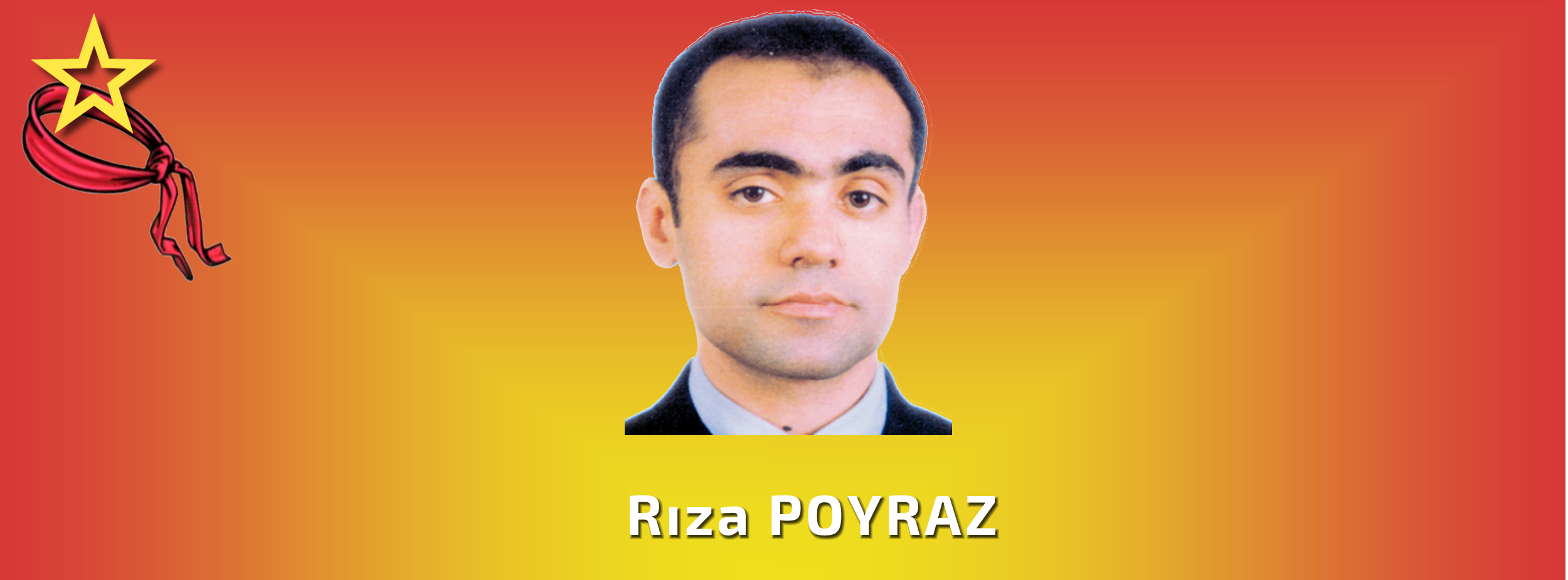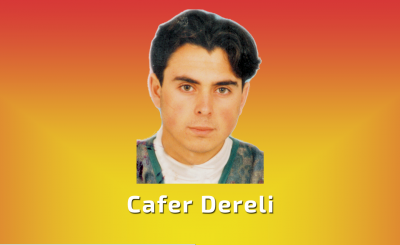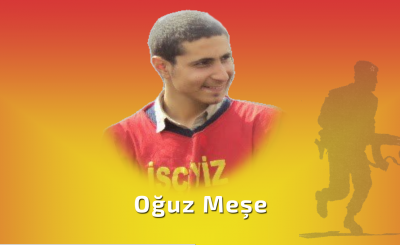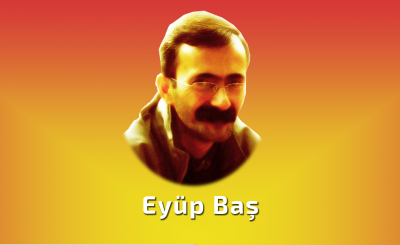Comrade Riza was born in 1971 in Dagonu village, Kangal, Sivas. He grew up in Gazi District (Istanbul), where he moved as a child. (Gazi is a shantytown in Istanbul where there are a lot of revolutionaries.) In Gazi he met both the revolutionaries and the state. He saw the struggle that the people waged there in the impoverished shantytown.
When he was young he worked in textile workshops. He grew up with a lot of people who became martyrs of the Front. Until he became more involved with our movement he was a modest supporter of the Front. He read, investigated and observed. He asked himself and questioned life as to why it was necessary to make revolution, and then he decided to join our struggle in an organised form. He dreamed of being a guerrilla. During his military service he was preparing himself to be a guerrilla and tried to find out how to cope with the climactic conditions. In 1998 he remained in contact with our movement. He started to do his duty in Istanbul and a short while later he was captured. The torturers were not able to endure his resistance. They threw Riza from the 5th floor of the Istanbul Security Department on Vatan Avenue. His legs were broken. When he was in Umraniye Prison he continued to learn and develop. You can see in Riza’s life and behaviour his devotion to his comrades, his people and their culture. He was to the forefront at the barricades on the day of the massacre. He was wounded there by gendarmerie bullets. He was martyred in hospital.
He explained what it is to be part of an organisation when he was already part of it:
“To be part of an organisation it is necessary to have belief, consciousness and a capacity for self-sacrifice. You need devotion from within. If we see ourselves like this and have this inside us there is no difficulty in overcoming problems. I saw how our country was being sold and our people impoverished. And seeing that, I also have to know how to be an obstacle to it. If this fire of rebellion bursts into flame on the mountain peaks, and if people are welcoming death and dancing halays (Anatolian folk dance) despite the gun barrels pointed at them, I should be obstinate in taking up and holding my position against the enemy, chanting tililis (a trilling noise made at weddings and funerals, especially in Kurdistan. As with the halay, it can have a suggestion of opposition to the system in Turkey). I have to sing our songs obstinately in the face of the enemy, and fearlessly I must march against the accursed enemy.”
Comrade Riza marched fearlessly against the accursed enemy. He marched against the murderers the way someone from Gazi should march.




